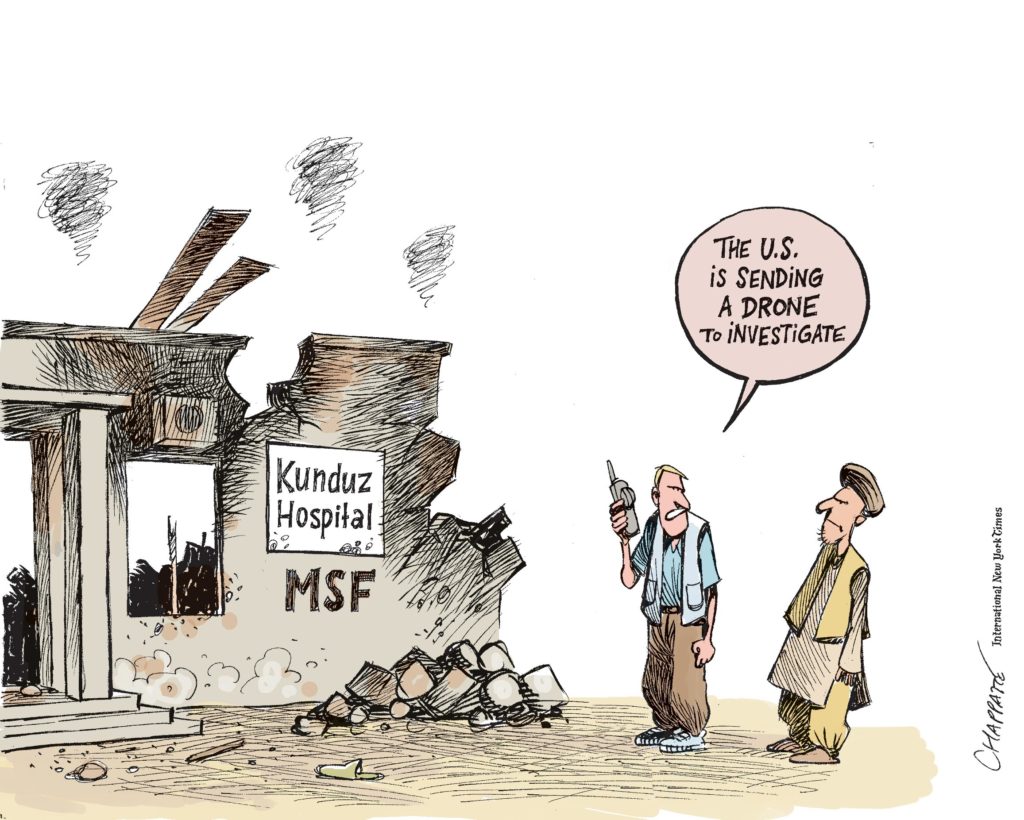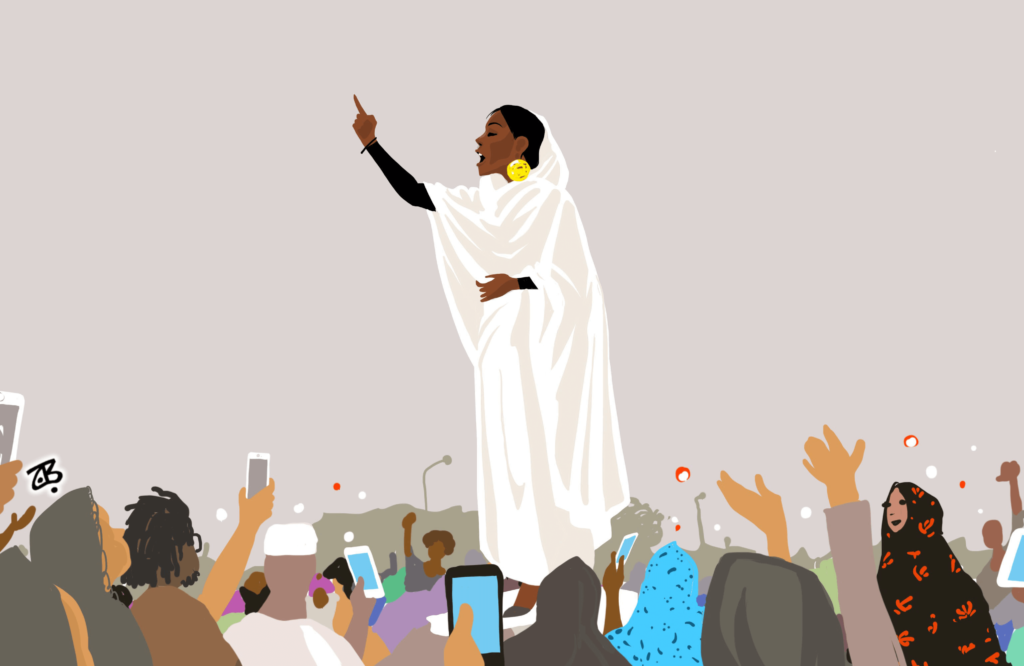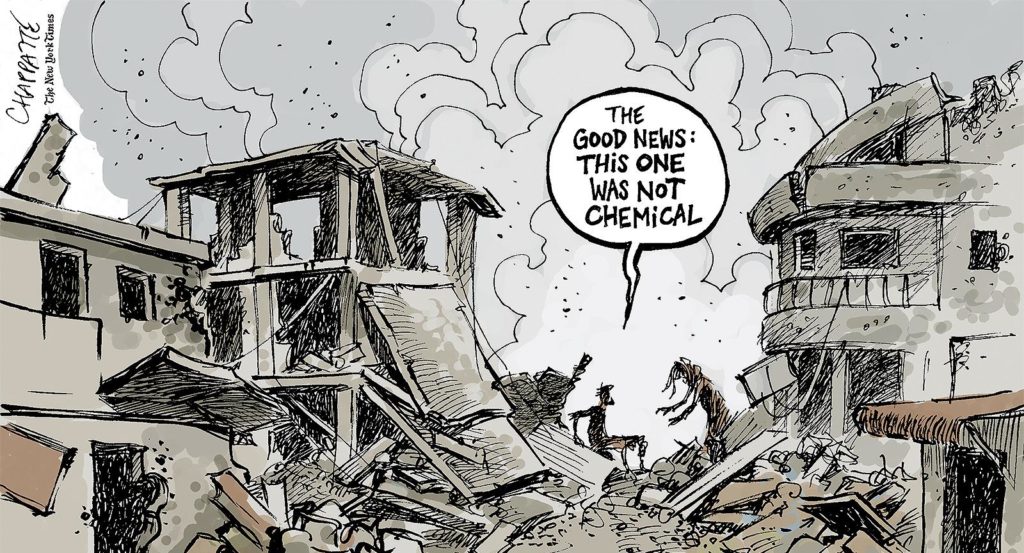The Dossier aims to explore new trends and expressions of violence in armed conflict in the 21st century. Taking as a starting point the changing paradigm of armed conflict – from conventional wars with clear contours towards more non-linear, fragmented and protracted types of civil and international conflict — it adopts a broad approach to portray changing forms of violence across different types of armed conflicts (including terrorism, international/civil wars or urban warfare). In the context of a fragmenting international order, with increasingly blurred lines between state and non-state, combatant and civilian, domestic and international, the number of actors involved in conflicts and concurrent strategies of violence have multiplied. In face of the ubiquity of violent conflict — despite an overall decline in interstate conflict and global number of casualties — the Dossier aims to shed light on new or changing forms of violence, their contexts, actors and victims. It explores the novelty, heterogeneity, scales and vectors of violent practices in contemporary conflicts by investigating the impact of a series of factors such as new military technologies (drones, robots), new communication tools (social media), gender, migration, or the subcontracting of security to private actors.
After 70 years of existence, human rights are facing criticism from many sides, some even claiming their fundamental inadequacy for the 21st century or imminent end. The human rights regime, based on the Universal Declaration of Human Rights (1948) and several subsequent covenants, is variously being accused of being elitist, Eurocentric and/or imperialistic in its universal claims and remaining blind to local customs and cultural specificities; of being implemented too tamely, inconsistently or even counterproductively by International organisations that are frequently co-opted by powerful state interests; and of being unable to address fundamental societal issues and transformations such as inequality, digital transformations and climate change.
Further critiques castigate human rights’ unmet promises, framing them as a neoliberal smokescreen, or admonishing their anthropocentrism, overlooking the rights of animals, plants or other non-human entities such as robots. In such a state of flux and uncertainty, human rights have also become, to some extent, victims of their own success, being articulated not only by an increasing armada of human rights actors and activists but also by atavistic forces referring to them more cynically. Such inflationary use of human rights, increasingly following a logic of transversality as reflected in the ever-expanding UN human rights issues or the flourishing of corporate CSR strategies and codes, ultimately risks eroding their operability and epistemic traction.
However, as shifting geostrategic constellations, the rise of populism, identitarian politics, authoritarian governments and the current epidemic are all contributing to further fragilising human rights, they remain more crucial to the world’s future than ever. The current Dossier therefore asks how the human rights regime will likely evolve faced by such challenges. Can it reinvent itself and, if so, how? Can we imagine human rights without the pretension to universalism and beyond the decline of the liberal paradigm? Are we moving towards human rights that are more collective in nature or of variable geometry? New perspectives and insights are needed from the legal, social and human sciences to answer these pivotal questions.
This dossier was produced by the Graduate Institute’s Research Office in collaboration with the Geneva Academy of International Humanitarian Law and Human Rights.
-
I

Human Rights in Flux: New Directions beyond Universalism
Reading time: 8 min -
1

Human Rights: The State of the Art
Reading time: 4 min -
2

Rescuing Human Rights: Challenges of Identity and Diversity in a Context of Democratic Backsliding
Reading time: 5 min -
3

Historical Foundations of Human Rights and Contemporary Crises
Reading time: 5 min -
4

Human Rights and Anthropology
Reading time: 5 min -
5

The Future of Economic, Social and Cultural Rights
Reading time: 5 min -
6

Feminisms and Human Rights
Reading time: 5 min -
7

Coherence and Alignment: The Future of Business and Human Rights
Reading time: 5 min -
8

Depletions: The Future of Population Decline and Human Rights
Reading time: 5 min -
9

Watering Down Human Rights? A Healthy Environment for the Rights to Water and Sanitation
Reading time: 5 min -
10

Governance of Digital Technologies and Human Rights
Reading time: 6 min
















